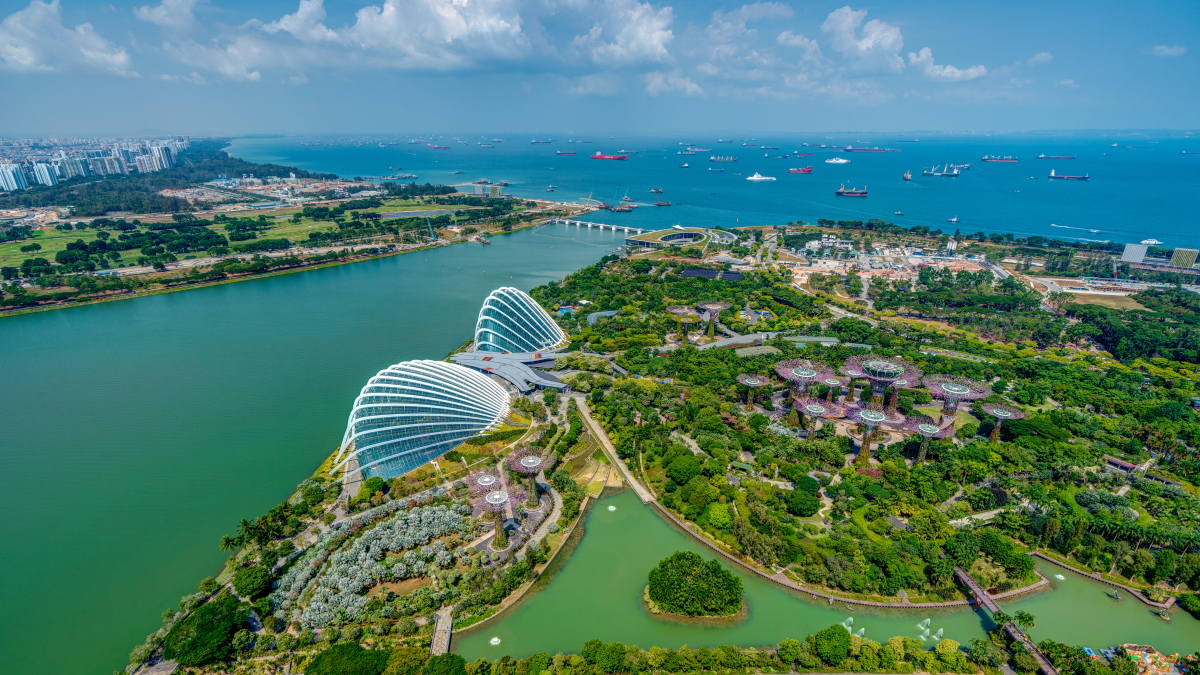Giving top priority to climate-related issues, the Monetary Authority of Singapore (MAS) allocated $1.8 bn for environmental, social, and governance (ESG) investment opportunities. Singapore’s central bank has placed these funds from official foreign reserves under its Green Investments Programme (GIP).
“MAS is integrating climate risks and opportunities into its investment framework,” said Ravi Menon, Managing Director, MAS. He spoke on the critical role of the financial sector in supporting the transition to a less carbon-intensive economy and channeling capital to green technologies and infrastructure.
He added later that this GIP will help to enhance the climate resilience of the official foreign reserves, attract sustainability-focused asset managers to Singapore and catalyze funding towards environmentally sustainable projects in Asia and beyond.
MAS plans to place this fund with five asset managers, who will manage new equity and fixed income mandates focused on climate change and the environment. These asset managers, whose names were not disclosed, plan to launch Asia-Pacific sustainability hubs in Singapore, as well as launch new ESG thematic regional funds. They will focus on generating green finance research and exploring green fintech solutions. These fund houses will also build capabilities in green finance through in-house and external training programs.
MAS aims for climate-resilient portfolio
MAS also published a standalone sustainability report, highlighting its battle plan to lead the energy transition in Asia. Releasing the report, Menon said, “Singapore is firmly committed to doing its part in the global effort to reduce greenhouse gas emissions.” The report is the first of its kind by a central bank in Asia, and the second globally after the Bank of England.
Following the Bank of England and France, the MAS also plans to conduct stress tests on the financial industry by end-2022 under a range of climate change scenarios. In addition, the central authority signaled that it plans to report annually on its efforts to strengthen the climate resiliency of the country’s official reserves. For example, through disclosing the weighted average carbon intensity. The central bank’s equities portfolio has a lower carbon intensity compared with the market benchmarks, Menon noted.
Besides creating a climate-resilient reserve portfolio, the authority also aims to strengthen financial institutions’ (FIs) role in supporting the green transition. The central bank has guidelines on environmental risk management for all financial institutions and plans to conduct a review later this year on implementation progress.
The central authority seeks to enhance climate-related financial disclosures by firms and already expects all banks, insurers, and asset managers to make climate-related financial disclosures from June 2022.
Singapore’s resilient ESG push
The recognition of climate change has grown strongly in Singapore over the years. Singapore has been ahead of its Asian peers when it comes to developing a vibrant green-finance ecosystem. Singapore is taking steps to decarbonize its domestic economy through various government incentives that support the development of sustainable finance products and fintech. Singapore’s parliament in 2021 declared climate change a global emergency, sending a clear signal over its commitment to seriously addressing the ESG factors.
MAS as Singapore’s integrated financial regulator has also been building the green bond market for years. Launched in 2017, the Sustainable Bond Grant Scheme has already propelled the issuance of almost $8 mn in ESG bonds in the city-state.
In the annual budget speech earlier this year, Singapore’s government announced a further commitment to issuing green bonds for big infrastructure projects, with $19 bn in public-sector work already identified for financing through green bond issuance. Earlier this year, the city-state also announced the ‘Singapore Green Plan’, charting concrete sectoral plans and targets over the next ten years to advance the national agenda on sustainable development. The plan aims for Singapore to achieve net zero emissions in the long term.










 Australia
Australia China
China India
India Indonesia
Indonesia Japan
Japan Malaysia
Malaysia Philippines
Philippines Singapore
Singapore South Korea
South Korea Taiwan
Taiwan Thailand
Thailand Vietnam
Vietnam Germany
Germany Hong Kong
Hong Kong USA
USA Switzerland
Switzerland Singapore
Singapore
 United Kingdom
United Kingdom






